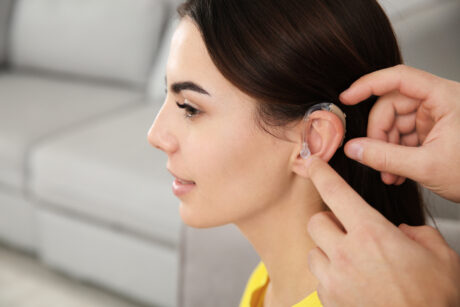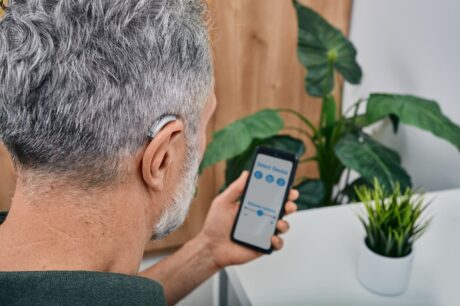Hearing aids are invaluable for people experiencing hearing loss, connecting them with the people around them and improving their overall quality of life. These devices are an investment in your well-being, and just like any valuable possession, proper careand maintenance can significantly extend their lifespan. By following a few simple steps, you can ensure your hearingaids continue to provide optimal hearing for years to come, saving you money and enhancing your listening experience.
1. Daily Cleaning and Maintenance
Think of your hearing aids like glasses — they require regular cleaning to function at their best. Daily cleaning removes earwax, dust, and moisture that can accumulate throughout the day and affect device performance. Here are the tools you’ll need to clean your hearing aids:
- Soft-bristled brush: This brush helps gently remove debris from the hearing aid.
- Cleaning cloth: A soft, dry cloth is ideal for wiping the hearing aid body down.
- Vent cleaner: If your hearing aids have vents, a dedicated vent cleaner can help keep these openings clear.
Follow these simple yet effective steps to keep your hearing aids in tip-top condition:
- Begin by gently brushing away any visible earwax or debris from the microphone ports, earmould, and other crevices.
- Use a clean, dry cloth to wipe down the entire hearing aid body and remove any moisture that might have accumulated.
- If applicable, use a vent cleaner to remove any blockages from the hearing aid vents.
Remember to always handle your hearing aids with care. Avoid dropping them or exposing them to excessive force, as this can cause damage to the delicate internal components.
2. Battery Management
Proper battery care is crucial for ensuring your hearing aids function reliably. For starters, always follow the manufacturer’s instructions for inserting and removing batteries. Avoid forcing the battery into the compartment, as this can damage the contacts.
Your choice of batteries also matters. High-quality batteries specifically designed for hearingaids ensure long-lasting performance in your device. Additionally, avoid mixing old and new batteries or using batteries from different manufacturers to protect the integrity of your device.
To conserve battery life, remember to turn your hearing aid off when you’re not using it. If you anticipate that you won’t be using it for an extended period of time, it’s a good idea to open the battery compartment. This precaution helps to prevent the battery from draining completely and damaging the internal circuit.
3. Protect Your Hearing Aids from the Elements
Just like us, hearing aids are sensitive to the elements. Protect them from moisture, humidity, dust, and extreme temperatures to ensure their longevity. Here’s how:
- Water protection: Remove your hearing aids before showering, swimming, or engaging in activities that may expose them to water.
- Humidity control: If you live in a humid climate, consider using a dehumidifier or drying kit to remove excess moisture from your hearing aids.
- Dust prevention: Store your hearing aids in a protective case when not in use to prevent dust buildup.
- Temperature regulation: Avoid leaving your hearing aids in direct sunlight or extreme temperatures, as this can damage the battery and internal components.
4. Proper Storage
When your hearing aids are not in use, such as when you’re sleeping, proper storage is essential to protect them from damage and prolong their lifespan. To shield them from dust and accidental damage, store your hearing aid in a protective case or cover. In turn, keep them in a cool, dry environment, such as a bedside table drawer.
5. Regular Professional Maintenance
Even with diligent dailycare, regular professional maintenance is essential for ensuring your hearing aids continue to perform optimally. These sessions can help to remove any stubborn debris or buildup that you might not have been able to reach in your dailycleaning routine. On top of that, a hearing aid professional can check for any signs of wear and tear and make the necessary adjustments to ensure the device is functioning properly.
Ideally, you should schedule professional hearing aid cleaning sessions every six months. This regularity allows for early detection of potential issues, preventing minor problems from escalating into major repairs.
Ensuring Hearing Aid Longevity

While the hearing aid fitting process is a crucial first step to enjoying optimal hearing, it’s equally important to prioritise long-term care and maintenance. By implementing these five tips, you can significantly extend the life of your hearing aids.
If you’re looking for help in maintaining your hearing aid in Singapore, reach out to us at Listening Lab for professional cleaning and testing services. We’re here to support you in your journey towards better hearing.











